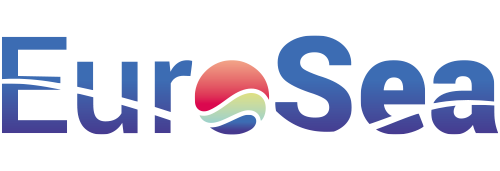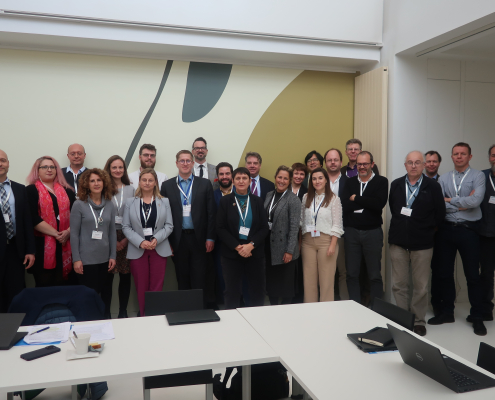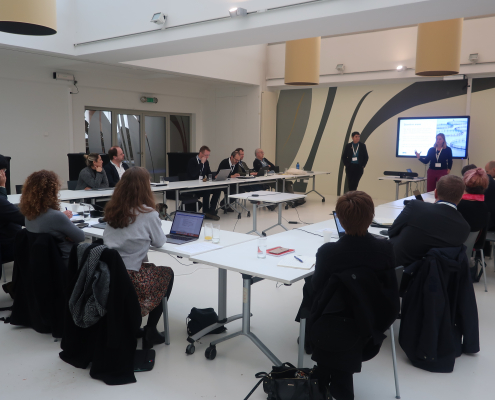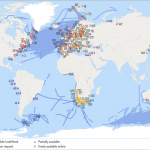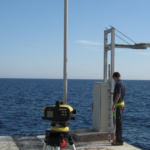It is the year 2035. Extreme weather events such as heavy rainfall, floods and heatwaves have become the new norm all around Europe, and timely ocean information is critical to respond to the crisis. This is the future scenario that was presented at the EuroSea foresight workshop titled “Ensuring accurate climate related predictions in Europe by 2035”, organized by the European Marine Board. The event took place on 15-16 March 2023 at the Museum of Natural Sciences in Brussels, Belgium.
The discussions started with a scenario of what the world might look like in 2035. A world in which extreme events across Europe such as heavy rainfall, floods and heatwaves, have become frequent and a new norm. Responding to the huge impact on human lives and the costs for the economy, the European Commission and National Governments would need accessible, timely, and actionable information from the European Ocean Observing and Forecasting System to respond to the crisis.
President of the Working Party on Maritime Issues Mattias Rust, representing the Swedish Presidency of the Council of the EU, set the scene in a thought-provoking talk. The rest of the workshop was animated by four discussants from the EuroSea partner organizations, who described issues such as, the legal barriers to ocean observing (Erik van Doorn, GEOMAR), funding and sustainability challenges (Vicente Fernández, EuroGOOS, and Edward Hill, NOC, UK) and the societal value of ocean observing (Emma Heslop, UNESCO-IOC GOOS).
These topics were used to describe three 2035 future scenarios: the worst case, the best case, and the probable 2035 future. The participants considered what a best-case scenario could deliver and what could be lost in a worst-case scenario. The participants also considered what needs to happen to arrive at the best-case scenario, and what possible steps are needed. Barriers that stand in the way of a strong and fit-for-purpose European Ocean Observing System were discussed. The workshop ended with a discussion on how the EOOS Framework Strategy and Roadmap for Implementation for 2023-2027 can ensure that we arrive at the best possible future.
The workshop has delivered recommendations for mechanisms to sustainably fund and coordinate ocean observation, prediction, and information delivery in Europe. These will inform the Framework of the European Ocean Observing System (EOOS), as part of the EuroSea project. The report will be made available soon.
This invitation only workshop was moderated by Sheila Heymans, Executive Director of the European Marine Board. The participants included representatives of the EOOS Resources Forum and Operations Committee, the European Commission, the G7 Future of the Seas and Oceans Initiative and the EU4Ocean Obs initiative, UNESCO-IOC GOOS, EuroGOOS, and EuroSea coordinator GEOMAR.
